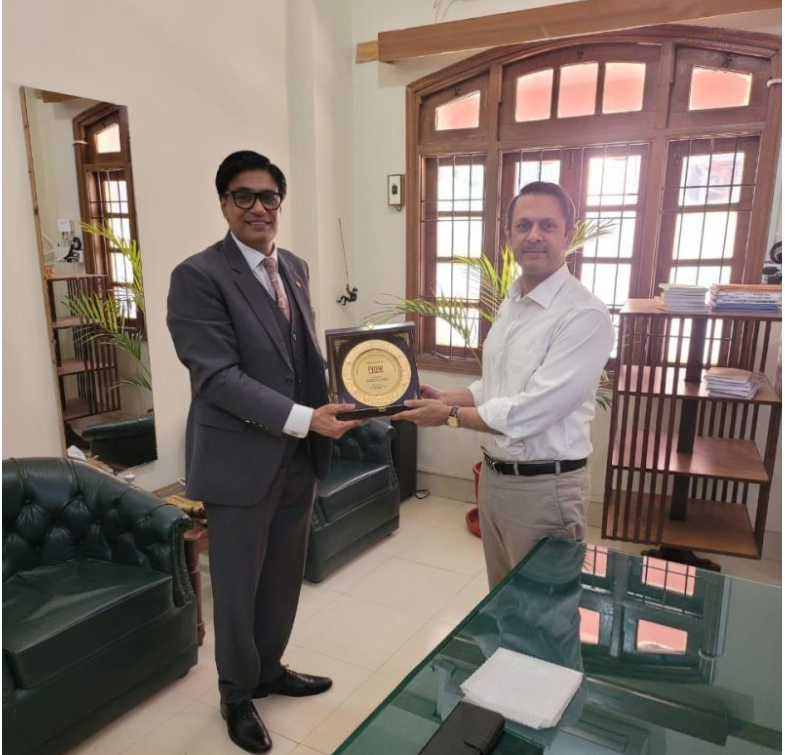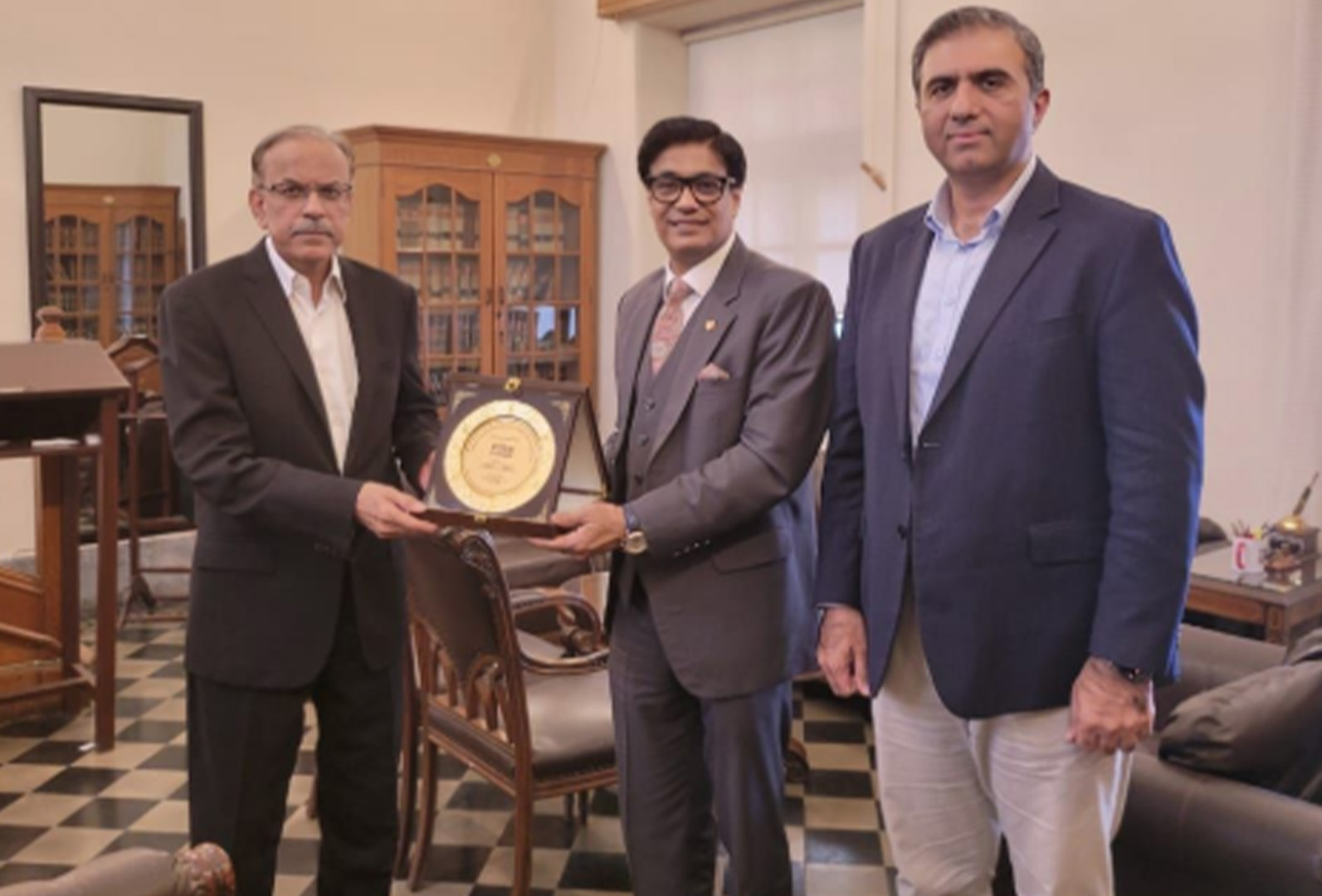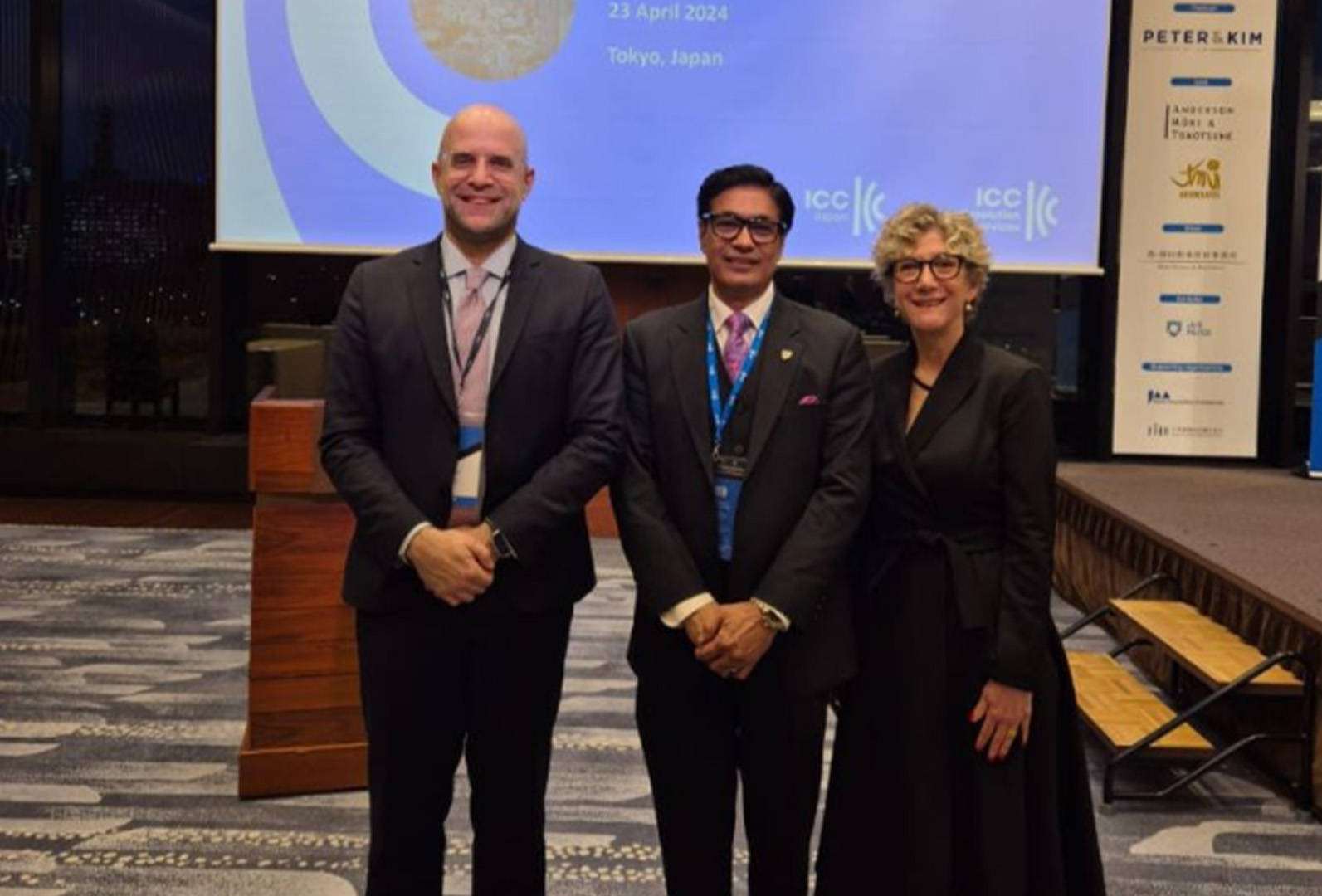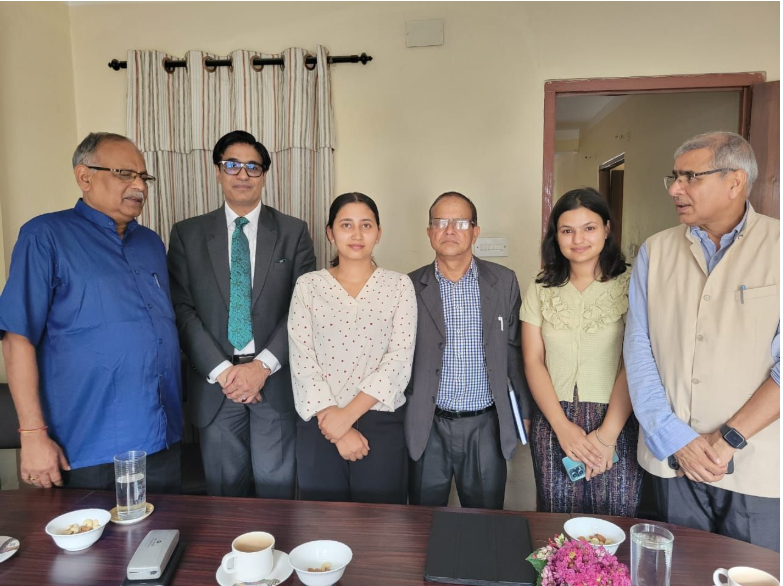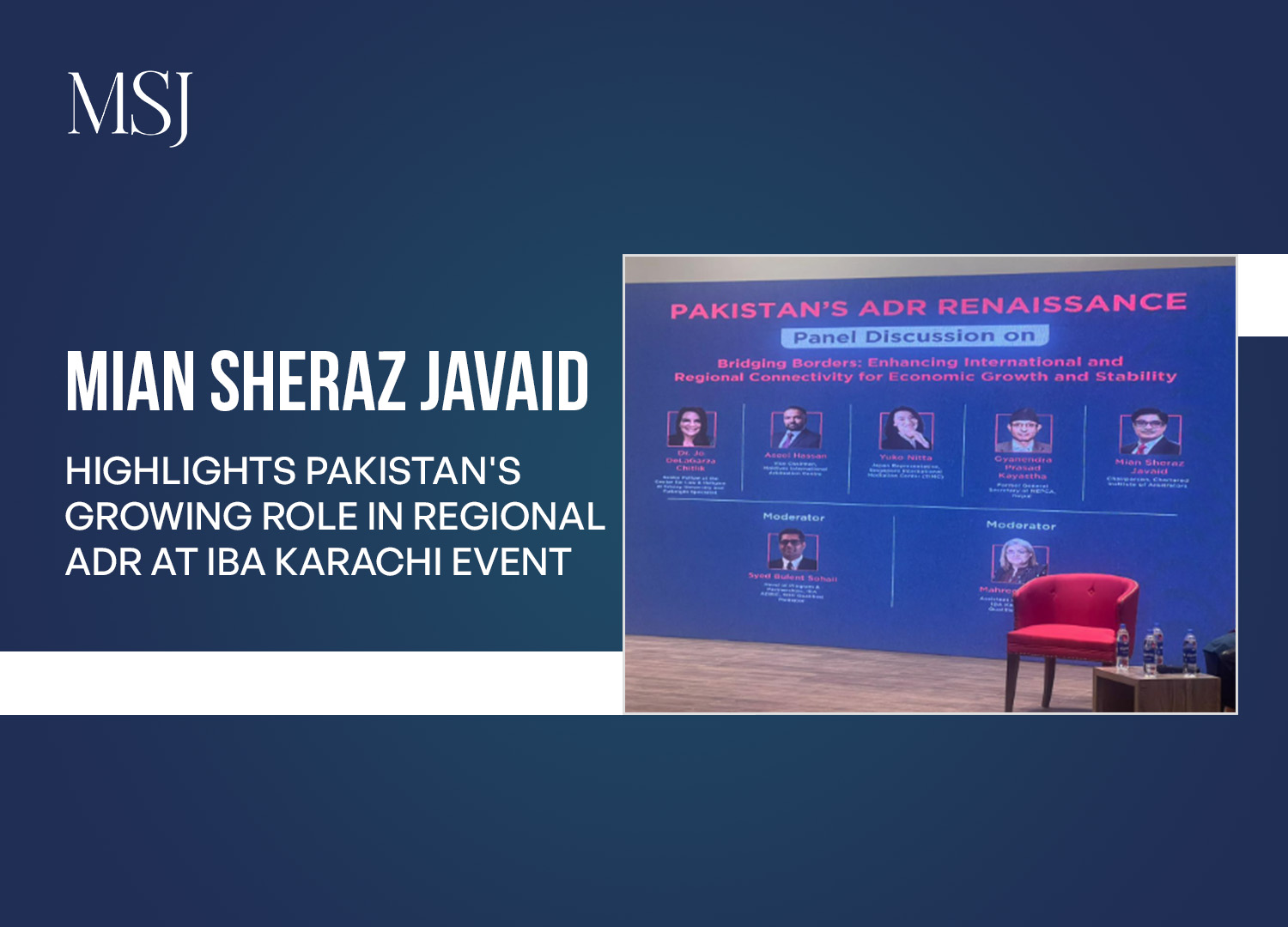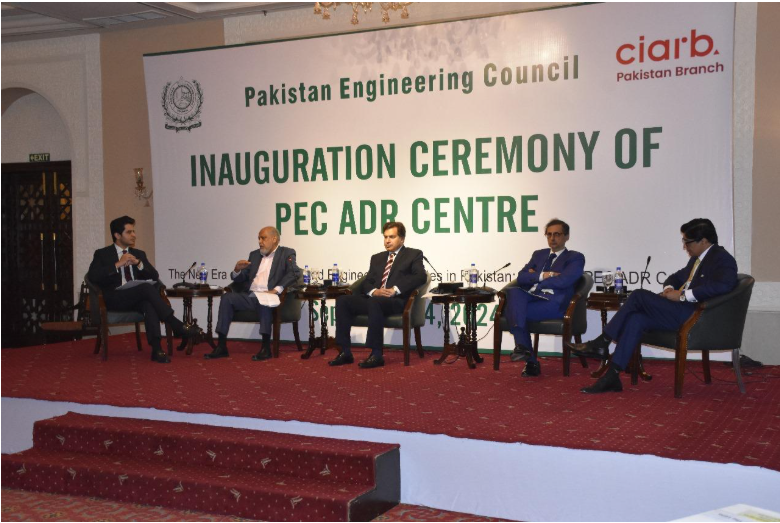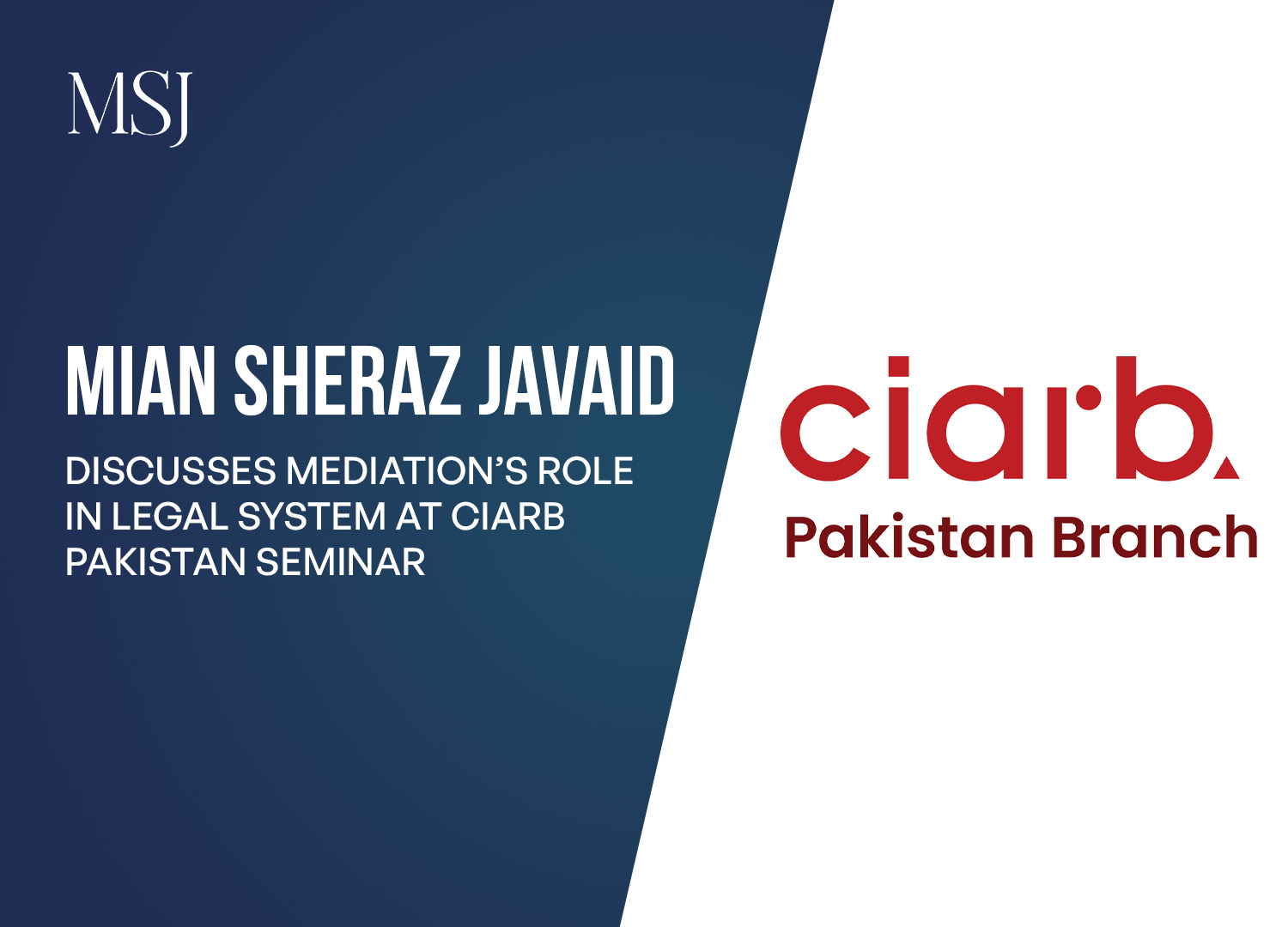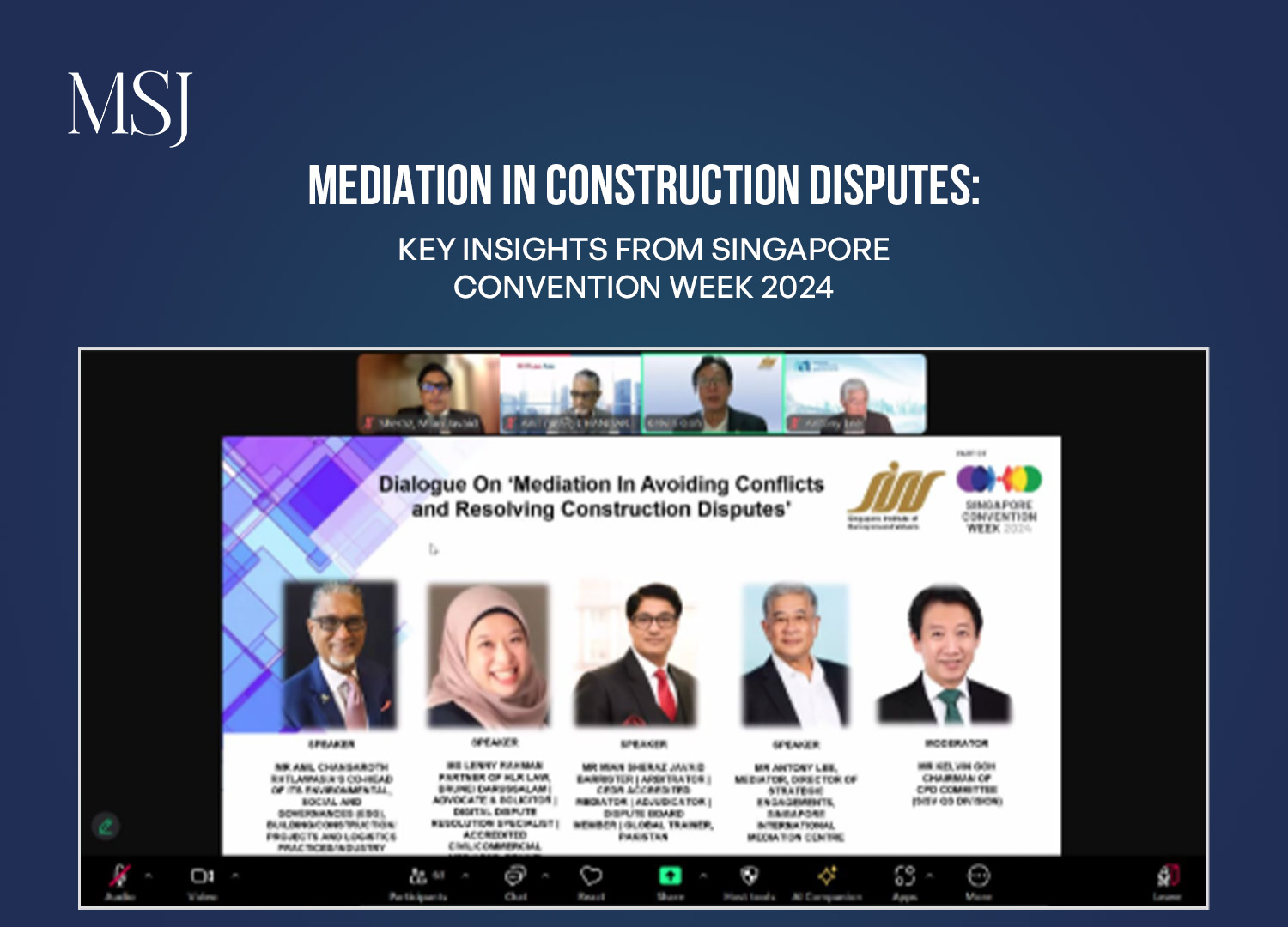MSJ Hosts RGU’s David Christie to Strengthen ADR and Academic Collaboration in Pakistan
The meeting, held in Lahore, was part of RGU’s broader efforts to develop academic and institutional linkages with Pakistan, particularly in fields tied to dispute resolution, legal innovation, and cross-border education.
ADR as a Shared Frontier
Christie, who also serves on the committee of the CIArb Scottish Branch, offered rich comparative perspectives on how arbitration and mediation are evolving across jurisdictions. The conversation with MSJ centered on best practices in ADR education and implementation, with both parties sharing their respective experiences in building professional capacity through training, mentorship, and institutional partnerships.
MSJ highlighted the transformational work of the CIArb Pakistan Branch, including national initiatives like the Pakistan International Disputes Weekend (PIDW), arbitration training with government and bar councils, and efforts to align Pakistan’s ADR regime with UNCITRAL and international institutional norms.
“Our goals are shared,” MSJ noted. “Whether in Aberdeen or Lahore, the future of dispute resolution depends on quality training, cross-border dialogue, and a generation of professionals who are both locally grounded and globally fluent.”
Academic Collaboration and Research Exchange
The discussion also explored Robert Gordon University’s interest in establishing meaningful collaborations in Pakistan, from academic exchanges and joint research to professional development programs for students and practitioners.
Christie outlined RGU’s initiatives to internationalize its legal education programs, including opportunities for Pakistani students to engage with Scottish legal education, and pathways to integrate ADR into academic curricula through practice-based models. Both sides expressed a mutual interest in launching pilot programs in research, internships, and continuing legal education.
MSJ emphasized the importance of academic collaborations that do not just benefit law students, but engineers, construction professionals, and commercial leaders who increasingly rely on ADR for cost-effective, timely, and enforceable solutions.
Building Sustainable, Cross-Border Partnerships
Both MSJ and Christie agreed that the potential for sustainable bilateral cooperation is immense. With Pakistan’s rising investment in legal infrastructure and education, and the UK’s rich ADR ecosystem, such partnerships promise to shape not only careers but also the dispute resolution architecture of tomorrow.
Fakhar-un-Nisa, whose work bridges engineering, law, and education, played a pivotal role in the dialogue, sharing ground realities from Pakistan’s construction and legal industries. She emphasized the need for context-sensitive training and the power of female leadership in ADR’s future.
The Road Ahead
The visit concluded with a shared commitment to formalizing these engagements into strategic partnerships, beginning with proposed joint seminars, student opportunities, and faculty exchanges over the coming academic year.
“We are not just looking at one-off collaborations,” MSJ said. “We are building long-term institutional bridges that will empower our legal communities, strengthen our arbitration systems, and enhance global understanding.”
Christie echoed the sentiment, calling the engagement “a meaningful start to a journey of shared knowledge, mutual growth, and global legal integration.”


